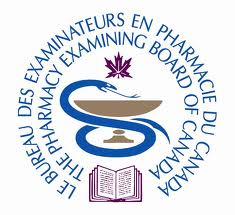Symptoms in the Pharmacy :Gastrointestinal Tract Problems(3)
Mouth ulcers in practice
Case 1
Anthony Jarvis, a man in his early fifties, asks you to recommend
something for painful mouth ulcers. On questioning, he tells you that
he has two ulcers at the moment and has occasionally suffered from
the problem over many years.
Usually he gets one or two ulcers inside
the cheek or lips and they last for about 1 week. Mr Jarvis is not taking
any medicines and has no other symptoms. You ask to see the lesions
and note that there are two small white patches, each with an angry looking
red border. One ulcer is located on the edge of the tongue, the
other inside the cheek. Mr Jarvis cannot remember any trauma or
injury to the mouth and has had the ulcers for a couple of days. He
tells you that he has used pain-killing gels in the past and they have
provided some relief.
The pharmacist’s view
From what he has told you, it would be reasonable to assume that
Mr Jarvis suffers from recurrent minor aphthous ulcers. Treatment
with hydrocortisone pellets (one pellet dissolved in contact with the
ulcers four times a day), with triamcinolone in carmellose dental
paste, or with a local anaesthetic or analgesic gel applied when
needed, would help to relieve the discomfort until the ulcers healed.
Mr Jarvis should see his doctor if the ulcers have not healed within
3 weeks.
The doctor’s view
Mr Jarvis is most likely suffering from recurrent aphthous ulceration.
As always, it is worthwhile enquiring about his general health,
checking in particular that he does not have a recurrent bowel upset
or weight loss. These ulcers can be helped by a topical steroid
preparation.
Case 2
One of your counter assistants asks you to recommend a strong
treatment for mouth ulcers for a woman who has already tried several
treatments. The woman tells you that she has a troublesome ulcer that
has persisted for a few weeks. She has used some pastilles containing
a local anaesthetic and an antiseptic mouthwash but with no
improvement.
The pharmacist’s view
This woman should be advised to see her doctor for further investigation.
The ulcer has been present for several weeks, with no sign of
improvement, suggesting the possibility of a serious cause.
The doctor’s view
Referral is correct. It is likely that the doctor will refer her to an oral
surgeon for further assessment and probable biopsy as the ulcer could
be malignant. Cancer of the mouth accounts for approximately 2% of
all cancers of the body in Britain. It is most common after the sixth
decade and is more common in men, especially pipe or cigar smokers.
Cancer of the mouth is most often found on the tongue or lower lip. It
may be painless initially.
Case 1
Anthony Jarvis, a man in his early fifties, asks you to recommend
something for painful mouth ulcers. On questioning, he tells you that
he has two ulcers at the moment and has occasionally suffered from
the problem over many years.
Usually he gets one or two ulcers inside
the cheek or lips and they last for about 1 week. Mr Jarvis is not taking
any medicines and has no other symptoms. You ask to see the lesions
and note that there are two small white patches, each with an angry looking
red border. One ulcer is located on the edge of the tongue, the
other inside the cheek. Mr Jarvis cannot remember any trauma or
injury to the mouth and has had the ulcers for a couple of days. He
tells you that he has used pain-killing gels in the past and they have
provided some relief.
The pharmacist’s view
From what he has told you, it would be reasonable to assume that
Mr Jarvis suffers from recurrent minor aphthous ulcers. Treatment
with hydrocortisone pellets (one pellet dissolved in contact with the
ulcers four times a day), with triamcinolone in carmellose dental
paste, or with a local anaesthetic or analgesic gel applied when
needed, would help to relieve the discomfort until the ulcers healed.
Mr Jarvis should see his doctor if the ulcers have not healed within
3 weeks.
The doctor’s view
Mr Jarvis is most likely suffering from recurrent aphthous ulceration.
As always, it is worthwhile enquiring about his general health,
checking in particular that he does not have a recurrent bowel upset
or weight loss. These ulcers can be helped by a topical steroid
preparation.
Case 2
One of your counter assistants asks you to recommend a strong
treatment for mouth ulcers for a woman who has already tried several
treatments. The woman tells you that she has a troublesome ulcer that
has persisted for a few weeks. She has used some pastilles containing
a local anaesthetic and an antiseptic mouthwash but with no
improvement.
The pharmacist’s view
This woman should be advised to see her doctor for further investigation.
The ulcer has been present for several weeks, with no sign of
improvement, suggesting the possibility of a serious cause.
The doctor’s view
Referral is correct. It is likely that the doctor will refer her to an oral
surgeon for further assessment and probable biopsy as the ulcer could
be malignant. Cancer of the mouth accounts for approximately 2% of
all cancers of the body in Britain. It is most common after the sixth
decade and is more common in men, especially pipe or cigar smokers.
Cancer of the mouth is most often found on the tongue or lower lip. It
may be painless initially.



Comments